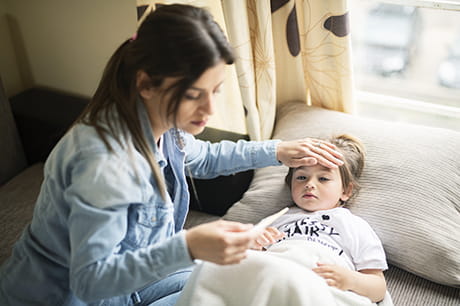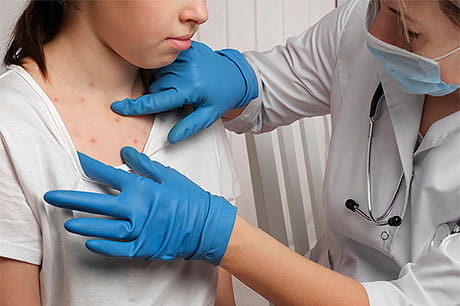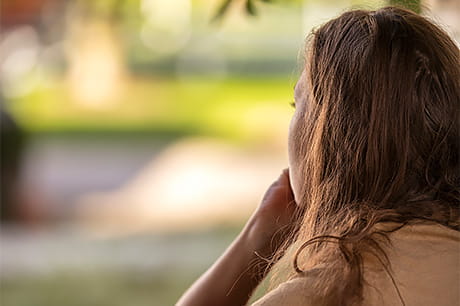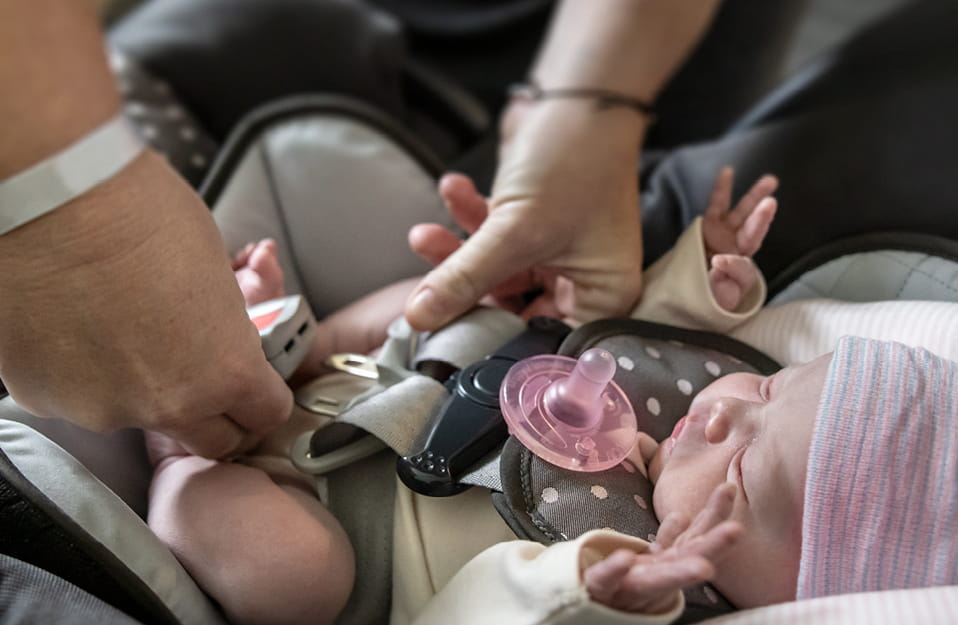Know the symptoms of RSV
This respiratory infection has symptoms much like those of the common cold. It’s often diagnosed in children, but it can affect adults, too.
When you or a loved one are sneezing, coughing and blowing your nose, it’s normal to think you have a cold — especially in the fall or winter. However, respiratory syncytial virus (RSV) is another possibility. This highly contagious lung infection can lead to serious complications, especially in young children and adults with weakened immunity.
Those most at risk for contracting RSV include:
- Premature infants
- Infants under 6 months old
- Children and adults with weakened immune systems (such as those being treated for cancer)
- Children and adults with chronic heart or lung conditions
- Adults over age 65
RSV spreads through direct contact or through infected respiratory droplets in the air. It can enter the body through the eyes, nose or mouth — so if you touch a contaminated object and rub your eye, you’re likely to be infected. The virus can also live for hours on hard surfaces.
Symptoms of RSV
There’s no easy way to know for sure if someone has RSV. Symptoms of RSV are similar to those of many other common respiratory illnesses, like the common cold, flu or COVID-19. And they’re different for children and adults, so knowing what to look for matters.
RSV symptoms in adults
Symptoms in adults can range from mild to severe. They include:
- Congested or runny nose
- Coughing
- Sneezing
- Sore throat
- Wheezing
- Fever
- Less appetite
- Headache
RSV symptoms in babies
RSV can look different for infants or small children (the populations most susceptible to RSV). Besides the adult symptoms, babies and young children may have:
- Fast breathing
- Rhythmic grunting while breathing
- Flaring of nostrils
- Head bobbing with breathing
- Belly breathing
“Symptoms of RSV will appear in stages — not all at once,” says Kathleen Noss, DO, pediatrician and northeast medical director of pediatrics at Geisinger. “Irritability and decreased activity are also symptoms in infants and young children.”
How long is RSV contagious?
You’re most contagious for about a week after symptoms appear. For some, like young children or those with a weakened immune system, the virus can continue to spread even after symptoms go away, for up to four weeks.
Treatment for RSV
RSV can most often be treated at home and will resolve on its own within two weeks. You can manage symptoms of this lung infection with over-the-counter medications and home remedies like:
- Taking over-the-counter pain and fever reducers, such as ibuprofen and acetaminophen. Note: Children under 6 months old should not take ibuprofen. Children should also not take aspirin, which can lead to Reye syndrome, a potentially life-threatening illness.
- Drinking plenty of fluids to prevent dehydration.
- Getting plenty of rest.
When to see a doctor
RSV can lead to more serious infections, like bronchiolitis (inflammation of the small airways in the lung) and pneumonia, and it’s the leading cause of hospitalization among children under 6 months of age.
Children with weakened immune systems from pre-existing conditions like congenital heart defects and chronic lung conditions are also more likely to have complications from RSV.
“If you or your child are having difficulty breathing, have a high fever or believe you are dehydrated, get medical attention immediately,” says Dr. Noss.
RSV and COVID-19
It’s possible to get more than one illness at the same time. “Having RSV can lower immunity and raise the risk of getting COVID-19 or another respiratory illness,” says Dr. Noss.
To keep you and your family healthy all year long, stay up to date on necessary vaccines.
Getting your annual flu shot and a COVID-19 booster if you’re eligible can help protect you from common viral illnesses and, if you do get sick, lessen the severity of symptoms. Besides these, an RSV vaccine is now available. Ask your or your child’s healthcare provider to learn more.
Preventing RSV
There are steps you can take to help prevent RSV.
- Wash your (and your little ones’) hands frequently. Use soap and water, and wash for at least 20 seconds.
- Getting the RSV vaccine.
- Cover your coughs and sneezes with a tissue or your arm, not your hand.
- If you’re sick, avoid close contact with others. This includes hugging, kissing, shaking hands and sharing utensils.
- Sanitize high-touch areas in your home, like light switches, cell phones and doorknobs.
Next steps:
Find a pediatrician
Your guide to understanding your child's fever
Get care now





